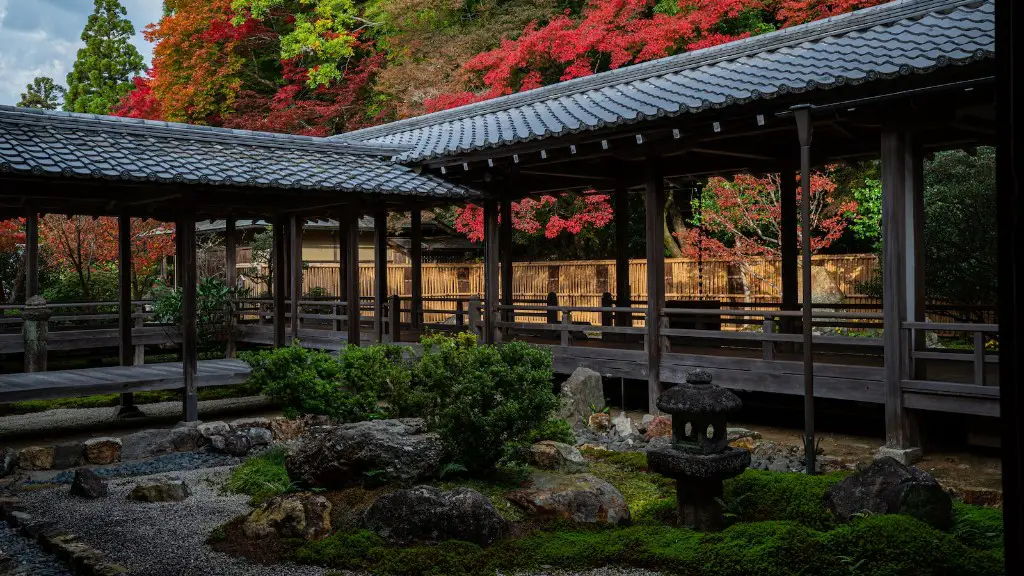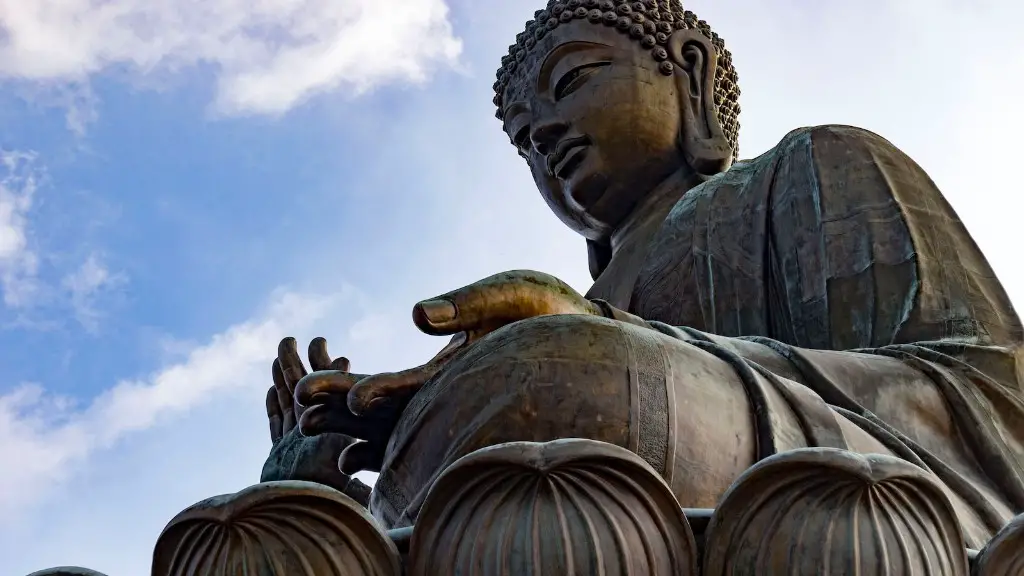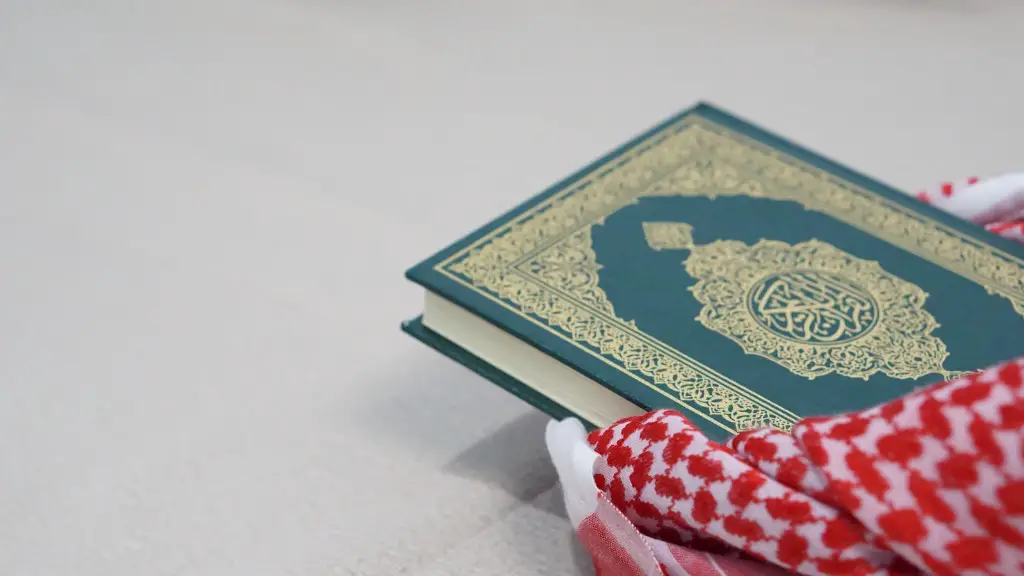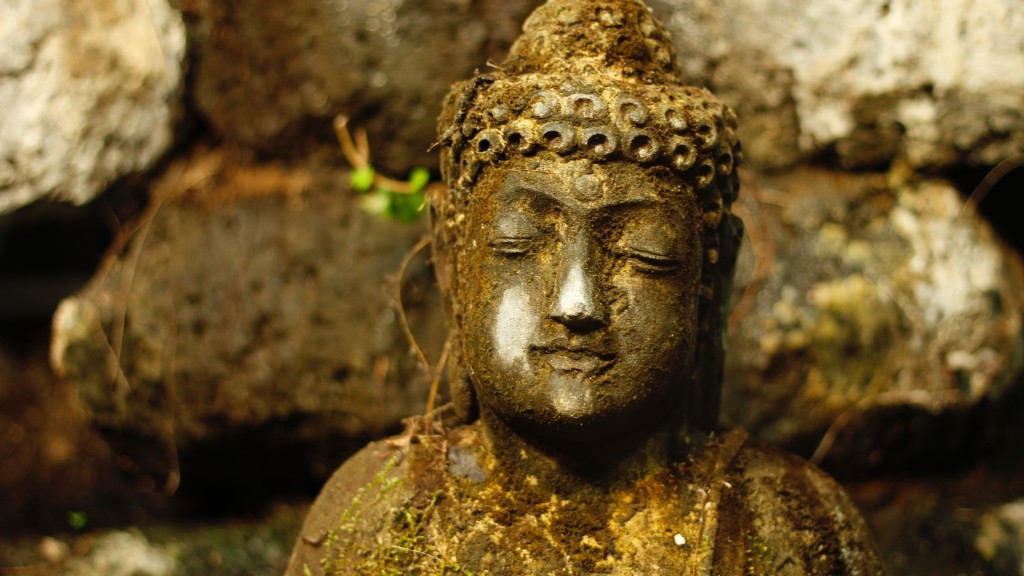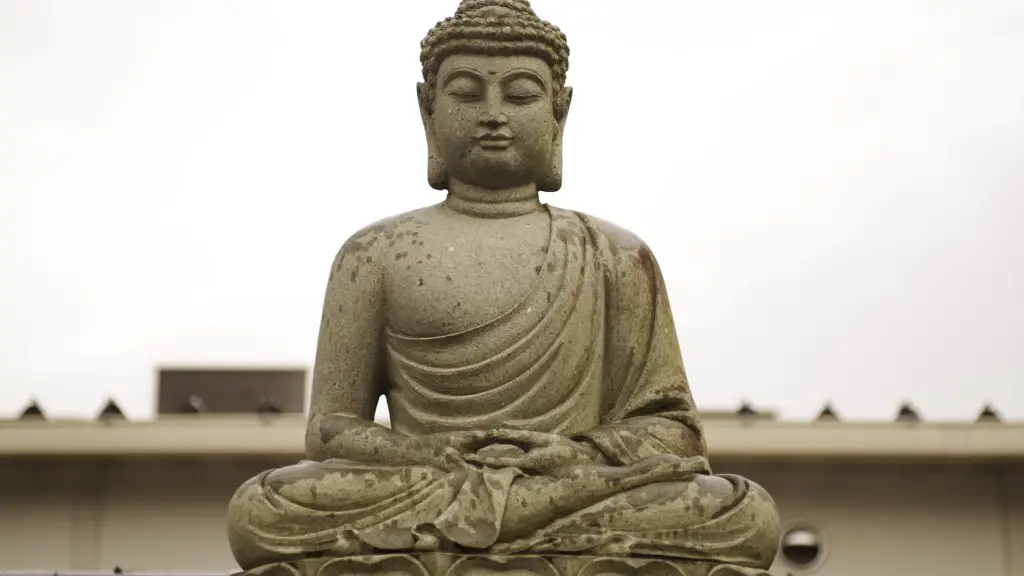Buddhism is based on the teachings of Siddhartha Gautama, who was born in present-day Nepal in the 6th century B.C.E. After a life of study and meditation, Siddhartha Gautama attained Enlightenment, and became the Buddha. The Buddha taught that the way to end suffering is to understand the true nature of reality, which is impermanent and interconnected. Buddhism spread throughout Asia, and has now grown to become a global religion.
The four noble truths are the basis of buddhism. The first truth is that life is full of suffering. The second truth is that the cause of suffering is our attachment to things that are impermanent. The third truth is that we can end our suffering by letting go of our attachment. The fourth truth is that the way to end our suffering is by following the Eightfold Path.
What is Buddhism inspired by?
Buddhists believe that Gautama found enlightenment while meditating under a Bodhi tree. After spending six years searching, he found that the key to enlightenment was through meditation. He then spent the rest of his life teaching others about how to achieve this spiritual state.
Buddhism is a religion that is based on the teachings of Siddhartha Gautama. The main principles of this belief system are karma, rebirth, and impermanence. Karma is the belief that your actions in this life will determine your destiny in future lives. Rebirth is the belief that after you die, you will be reborn into another life. Impermanence is the belief that nothing in life is permanent and that everything is constantly changing.
What are 5 basic beliefs of Buddhism
The Five Precepts are a set of guidelines for living a moral and ethical life. The first precept is to refrain from taking life, which means not killing any living being. The second precept is to refrain from taking what is not given, which means not stealing from anyone. The third precept is to refrain from the misuse of the senses, which means not having too much sensual pleasure. The fourth precept is to refrain from wrong speech, which means not lying or speaking harshly to others. The fifth precept is to refrain from intoxicants that cloud the mind, which means not using drugs or alcohol.
Buddhism is about 2500 years old and began in India. The Buddha was born a Hindu, but his teachings were different from Hinduism. He rejected the caste system and the authority of the Vedas, which were the sacred texts of Hinduism. He also taught that there is no soul, and that Nirvana can be attained through meditation and ethical living. After the Buddha’s death, his followers spread his teachings throughout Asia. Today, Buddhism is the fourth largest religion in the world, with over 500 million followers.
Do Buddhists believe in god?
Buddhism is a tradition focused on spiritual liberation, but it is not a theistic religion. The Buddha himself rejected the idea of a creator god, and Buddhist philosophers have even argued that belief in an eternal god is nothing but a distraction for humans seeking enlightenment.
The goal of Buddhism is to become enlightened and reach nirvana. Nirvana is believed to be attainable only with the elimination of all greed, hatred, and ignorance within a person. Nirvana signifies the end of the cycle of death and rebirth.
Who is the god of Buddhist?
Buddhists do not believe in any kind of deity or god, although there are supernatural figures who can help or hinder people on the path towards enlightenment. Siddhartha Gautama was born on the Nepali side of the present day Nepal-India border, and was a prince around the fifth century BCE.
There are inherent and fundamental differences between Buddhism and Christianity. One significant element is that while Christianity is at its core monotheistic and relies on a God as a Creator, Buddhism is generally non-theistic and rejects the notion of a Creator God. This means that Christians believe in one supreme being who created and controls the universe, while Buddhists do not believe in a supreme being or any kind of creator God. Buddhism does not focus on worshiping a creator, but instead Nirvana, or personal enlightenment.
What is the Buddhist way of life
The daily life of a Buddhist monk is one of strict schedule and routine. Every day, they wake up early to meditate and study the scriptures. They then take part in various ceremonies and rituals throughout the day. In the evening, they retire to their monasteries to rest and prepare for the next day. There are Buddhist shrines and monasteries all over the world, where monks live and worship.
The precepts are a set of five guidelines for living a moral and ethical life according to the Buddhist tradition. They are:
1. To refrain from taking life
2. To refrain from taking what is not given
3. To refrain from sexual misconduct
4. To refrain from incorrect speech
5. To refrain from intoxicants which cloud the mind
The precepts are not meant to be taken as a set of rigid rules, but rather as a set of rotating concentrations or practices which help to develop mind and character and allow progress on the path to enlightenment.
What food is forbidden in Buddhism?
Food is an important part of Buddhist culture and tradition. Buddhist monks and nuns are required to follow a special diet known as the “eight precepts of food” which includes avoiding certain types of meat (human, elephant, horse, dog, snake, lion, tiger, boar and hyena). The goal of this diet is to develop self-respect and protection from harm.
The three physical evils are killing, stealing, and sexual misconduct. The four verbal evils are lying, flattery or indiscriminate and irresponsible speech, defamation, and duplicity. The three mental evils are greed, anger, and foolishness or the holding of mistaken views.
Do Buddhists believe in heaven
In Buddhism, there is no concept of punishment or reward and there is no divine being who decides who goes to hell or heaven There is merely the illusory results of our thought, words and deeds, which we call karma. Karma is the law of cause and effect, and it is what we create for ourselves. It is not something that is decided by a external force. We create our own destiny through our actions, and we are responsible for our own karma.
Buddhism and Hinduism are both Eastern religions that share a similar goal of liberation or spiritual enlightenment from the cycle of rebirths (samsara). Although there are some differences in their philosophies and practices, both religions place an emphasis on renunciation, karma, and meditation. In Buddhism, the path to liberation is through the Four Noble Truths and the Eightfold Path, while in Hinduism it is through the practice of yoga and meditation.
What is Buddhism’s holy book called?
The Tripitaka Pali canon is the complete canon of the Theravada branch of Buddhism. It is first recorded in Pali, and contains the teachings of the Buddha and his followers. The Tripitaka is divided into three parts: the Vinaya Pitaka, the Sutta Pitaka, and the Abhidhamma Pitaka. The Vinaya Pitaka contains the rules and regulations for monks and nuns, while the Sutta Pitaka contains the Buddha’s discourses. The Abhidhamma Pitaka contains the Buddha’s psychological teachings.
It is believed that consciousness (the spirit) continues after death and may be reborn. Death can be an opportunity for liberation from the cycle of life, death and rebirth.
Do Buddhists drink alcohol
Buddhism in general has restricted the consumption of alcohol since early times. Despite the great diversity of Buddhist traditions across various countries, the teaching that alcohol is harmful to the body and mind is unanimous. In Buddhism, alcohol is seen as a hindrance to Enlightenment and spiritual practice, and as such, is to be avoided.
Buddhism denies the existence of a soul or self in a living being. Instead, it asserts that there is a cycle of transmigration consisting of rebirth and redeath. This cycle is the fundamental nature of existence.
Warp Up
Buddhism is based on the teachings of Siddhartha Gautama, who was born in what is now Nepal in the 6th century BCE. Siddhartha Gautama was a wealthy prince who lived a life of luxury. He had everything he could ever want, but he was not satisfied. He left his palace and his family to seek the truth about life. After six years of searching, he finally found the answers he was looking for. He realized that all of us are caught in a cycle of birth, death, and rebirth, and that the only way to escape this cycle is to reach a state of nirvana, or perfect peace.
Buddhism is based on the teachings of the Buddha, who taught that the way to end suffering is to live in a way that is ethical, mentally aware, and spiritually awakened.
